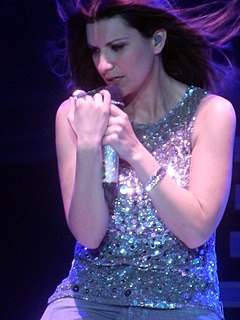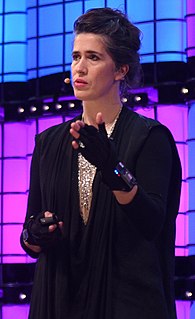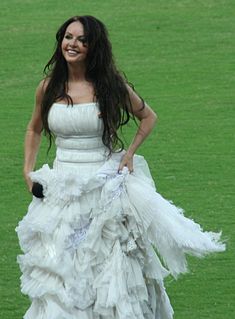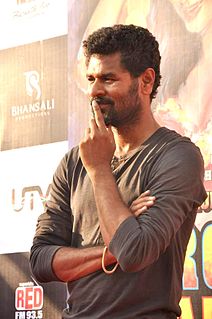A Quote by Steven Sebring
The film [Dream of Life] came together when we started editing; it was organic, it became nonlinear and it was its own animal. And I didn't want to tame it, either. I wanted it to be different. It's not your typical documentary.
Related Quotes
I was not ambitious as a child. My father encouraged me to enter competitions and contests, which became very much part of my life. I was not the typical teenager. I was very closed, shy and didn't hangout with my friends at disco's. My parents wanted me at home. Singing became my life, I traveled a lot on the job, and my job became my dream.
It may come as a surprise, but Frou Frou was really like a kind of little holiday from my own work. Guy and I, we have always worked together, and then over the years, it became clear that we wanted to do a whole album together. It was very organic and spontaneous - just one of those wonderful things that happens.
In the very beginning, women were editors because they were the people in the lab rolling the film before there was editing. Then when people like D. W. Griffith began editing, they needed the women from the lab to come and splice the film together. Cecil B. DeMille's editor was a woman. Then, when it became a more lucrative job, men moved into it.
The hardest stories we tell are always about ourselves. How do you explain that you have been missing your mother for 20 years? I don't know how to explain that to you. I wasn't even sure I wanted to film that, because I don't know how I felt about it. I didn't want to put her through it, and I frankly wasn't ready. Because since I was 16, I just had created my own life for myself, you know? I left when I was 12. I'm 32. And I have gotten to know my mother more through editing her and looking and watching and editing her footage, you know.
I grew up loving watching movies, and at a certain point, I started to become fascinated with making movies. Then I went to film school, and I got to dabble with different aspects of moviemaking, and I ended up settling heavily into editing - editing was what I was really adept at, had a passion for.
I'd like to drill in a little more detail into one aspect of cutting which is particularly close to me and that's dialogue editing. It is a vital part of editing especially in animated film, but in the end it is usually completely transparent to the audience. The vocal performances are reported for over several years and the actors are very rarely in recording studios together. That's why the editor has got to all these different performances and edit them together to create the illusion of spontaneity and real action.
All three parts of filmmaking [writing, shooting, editing] contribute to rhytm. You want the script to be a tight as possible, you want the acting to be as efficient as possible on the set, and you have enough coverage to manipulate the rhythm in the editing room, and then in the editing room you want to find the quickest possible version, even if it's a leisurely paced film. I definitely in filmmaking more and more find writing and directing a means to harvest material for editing. It's all about editing.
































